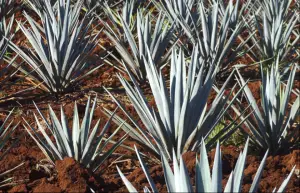Contributing Writer for Wake Up World
A new natural sweetener has been discovered which may prove to be an effective deterrent against diabetes and obesity. Made from the same plant as tequila, the sugar substitute lowers blood sugar levels and provides a source of dietary fiber. Considering almost 26 million Americans struggle with type 2 diabetes, and countless others battle obesity, the sweetener could very well play a significant role in curbing disease.
Not your ordinary sweetener
Found in the agave plant, sweet-tasting agavins help encourage insulin production, which lowered blood glucose levels in animal tests. Additionally, researchers noted the sugar substitute assisted obese mice in losing weight. According to Forbes:
“Unlike sucrose, glucose, and fructose, agavins aren’t absorbed by the body, so they can’t elevate blood glucose, according to research by Mercedes G. Lopez, a researcher at the Centro de Investigacion y de Estudios Avanzados, Biotechnology and Biochemistry Irapuato, in Guanajuato, Mexico.”
The article continues, stating that agavins boost “the level of a peptide called GLP-1 (short for glucagon-like peptide-1), which triggers the body’s production of insulin, agavins aid the body’s natural blood sugar control. Also, because agavins are type of fiber, they can make people feel fuller and reduce appetite, Lopez’s research shows.”
For the study, Lopez and her team fed a group of mice a standard diet and added agavins to the animal’s water supply. The mice were weighed daily, while glucose levels were checked weekly. A majority of the mice who drank the agavins consumed less food, lost weight and experienced a drop in blood glucose levels.
The crucial difference between agavins and other sugars
Not to be mistaken with fructose-rich agave nectar, agavins are fructans — a type of long-chain fructose which the body cannot use and doesn’t absorb. Lopez elaborates in “Tequila plant possible sweetener for diabetics, helps reduce blood sugar, weight”:
“Agavins are fructans, which are fructoses linked together in long, branched chains. The human body can’t use them in that configuration, so they don’t affect blood sugar. Agavins also sometimes get confused with agave nectar or agave syrup, which appears on many health-food store shelves. These products contain fructans that have been broken down into individual fructoses, so they are much more similar to high-fructose corn syrup.”
Furthermore, agavins act as a prebiotic, boosting levels of beneficial lactobacillus and bifidus bacteria. And the fiber content helps to lower blood cholesterol and triglycerides.
The main disadvantage of the sugar substitute is that agavins aren’t quite as sweet as other types of sugar. It can also cause digestive upset in sensitive individuals. So far, only animal tests have been conducted on the sweetener, but researchers are enthusiastic about the implications for humans.
Article Sources
http://www.sciencedaily.com/releases/2014/03/140316152951
Previous articles by Carolanne:
- Common Toxin in Your Pantry Causes Obesity, Diabetes, Infertility… and Much More
- Hemp – The Ultimate Cash Crop, Health Food and Environmental Savior Rolled Into One
-
Europe Embraces Healthy Raw Dairy by Unveiling Fresh Milk Vending Machines
- Confirmed by Science: You Really Can Change Your DNA – Here’s How
-
Chemtrails: Learn How to Protect Yourself From These Treacherous Poisons
- Top 10 Food Frauds: Formaldehyde, Plastic, Melamine & Caustic Soda Found in Common Foods
- Autistic Boy With Higher IQ Than Einstein Discovers Gift After Removal From State-Run Therapy
-
Enhance Spiritual, Mental and Physical Well-being with a Pineal Gland Detox
About the author:
I’m Carolanne — a writer, chef, traveler and enthusiastic advocate for sustainability, organics and joyful living. It’s good to have you here. If you would like to learn more, connect with me at Thrive-Living.net or visit Twitter.com/Thrive_Living.Please note: this article was first published on Natural News.

If you've found value in our articles, we invite you to support the release of our brand-new book, "Gratitude Practices for Kids: A Practical Guide for Adults to Instill a Spirit of Appreciation and Positivity in the Next Generation."
"Gratitude Practices for Kids" brings together over 25 innovative and accessible practices designed to enhance gratitude in everyday life. This comprehensive guide is backed by 17 scientific studies, ensuring each concept is grounded in research, underscoring our commitment to nurturing growth, emotional intelligence, and positive interactions between adults and children.
We encourage you to opt for the paperback version to celebrate this new release. Dive into its fresh pages away from digital distractions, allowing you to immerse yourself in the transformative practices it offers.
Over recent years, Wake Up World has faced significant online censorship, which has impacted our financial ability to operate. Moving into book publishing represents a strategic step to secure the ongoing funds needed to continue our mission. By purchasing Gratitude for Kids, you help us keep our content free and accessible to everyone, avoiding needing a paywall. With over 8,500 articles published in the last 13 years, we remain dedicated to keeping our valuable content open to all.









